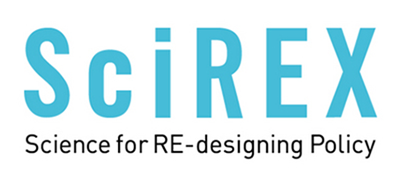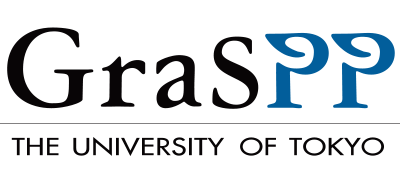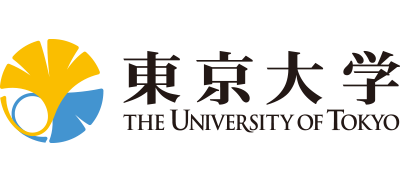Developing Specialists Bridging Science and Technology, Policy, and Society

3.The Social Impact of SciREX’s Networks and Expertise
—— Initiatives beyond education
❖ Summer camp: students and faculty from SciREX centers work together to create policy proposals
Each year, SciREX organizes a three-day, two-night summer camp (https://scirex.grips.ac.jp/en/programs/summercamp.html) over the summer holidays. The summer camp brings together students and faculty from the five SciREX core centers (six universities) to take part in collaborative tasks, with the aim of fostering mutual understanding and promoting networking.
Besides attending special lectures and panel discussions, participants are also divided into teams based on policy topics and take part in group activities such as field work (visiting factories and startups, etc.) and interviewing stakeholders in order to develop evidence-based policy proposals. On the final day, each team presents its ideas to actual policymakers from MEXT and other organizations.
In the beginning, the summer camp was organized by each of the SciREX universities in turn, with the inaugural camp being held on the Kyushu University Campus in FY2012. Other locations included Tsukuba City in Ibaraki Prefecture, Awajishima City in Hyogo Prefecture, Inuyama City in Aichi Prefecture, and Matsushima Town in Miyagi Prefecture. Since FY2017, more focus has been placed on connections to the actual policies of Japanese government ministries and agencies, especially those of MEXT, and the camp has been held at the National Graduate Institute for Policy Studies (GRIPS) in Tokyo to facilitate meetings with government officials and other activities.
By participating in this summer camp, students have the chance to collaborate closely together with their counterparts and faculty members from other centers, and work intensively to come up with policy proposals for a particular theme in just a short amount of time. The best proposals are selected and awarded based on a comprehensive evaluation, and the winning groups are given further opportunities to present their proposals. For example, the winners of the Best Award, with a proposal on medical expenses in an aged society, and others gave poster presentations at the January 2020 SciREX Open Forum (https://www.murc.jp/wp-content/uploads/2019/10/t_200115.pdf). In this way, the summer camp also serves the purpose of training students in stakeholder communication.
❖ Core Contents: explanations of key terminology in this new academic field
Since the science of STI policy is a new academic field that spans a broad range of disciplines, including economics, management, politics, sociology, engineering, and medicine, SciREX has compiled a set of Core Contents (https://scirex-core.grips.ac.jp/core) that explains the fundamental concepts of the field. Special care was taken to make the Core Contents a valuable resource not only for students new to the field, but also STI policymakers and practitioners.
The Core Contents were written by researchers, STI policymakers, and practitioners, under the supervision of a core curriculum editorial committee consisting of members from each of the core centers and related organizations. However, rather than serving as a structured textbook with rigid definitions, the Core Contents are designed to share current information and topics and be updated as necessary. Therefore, there may even be slight inconsistencies among the different chapters, but it is hoped that, if anything, that will only serve to stimulate more active discussions and debate.
The Core Contents are available on the following website and are open to the public (https://scirex-core.grips.ac.jp/all.pdf; currently only available in Japanese).
❖ Trainings for Japanese government officials: coevolution of EBPM by researchers and officials
There is a growing recognition that researcher-driven policy proposals alone are not sufficient for coming up with effective, evidence-based STI policies. Rather, government officials themselves need to change the policymaking process.
That is why SciREX has been providing trainings for Japanese government officials (https://scirex.grips.ac.jp/en/programs/officials.html), primarily early-career MEXT officials involved in STI policies, around once a year. Participating officials are able to benefit from the many insights and vast networks that SciREX has developed, as well as our Core Contents, while studying evidence-based policymaking (EBPM) methods and application methods for putting policies into practice. Alongside lectures, participating officials work together with junior faculty members to tackle topics of shared interest, hold joint studies and discussions, and give joint presentations of their findings.
SciREX has also launched the Coevolution Program (https://scirex.grips.ac.jp/en/programs/Coevolution.html) in which researchers and government officials engage in collaborative research and advance EBPM on topics chosen based on the needs of MEXT. By having researchers and early-career officials hold joint discussions and presentations, SciREX’s training program for government officials “coevolves” research, in a sense, which is an important first step for promoting EBPM.



